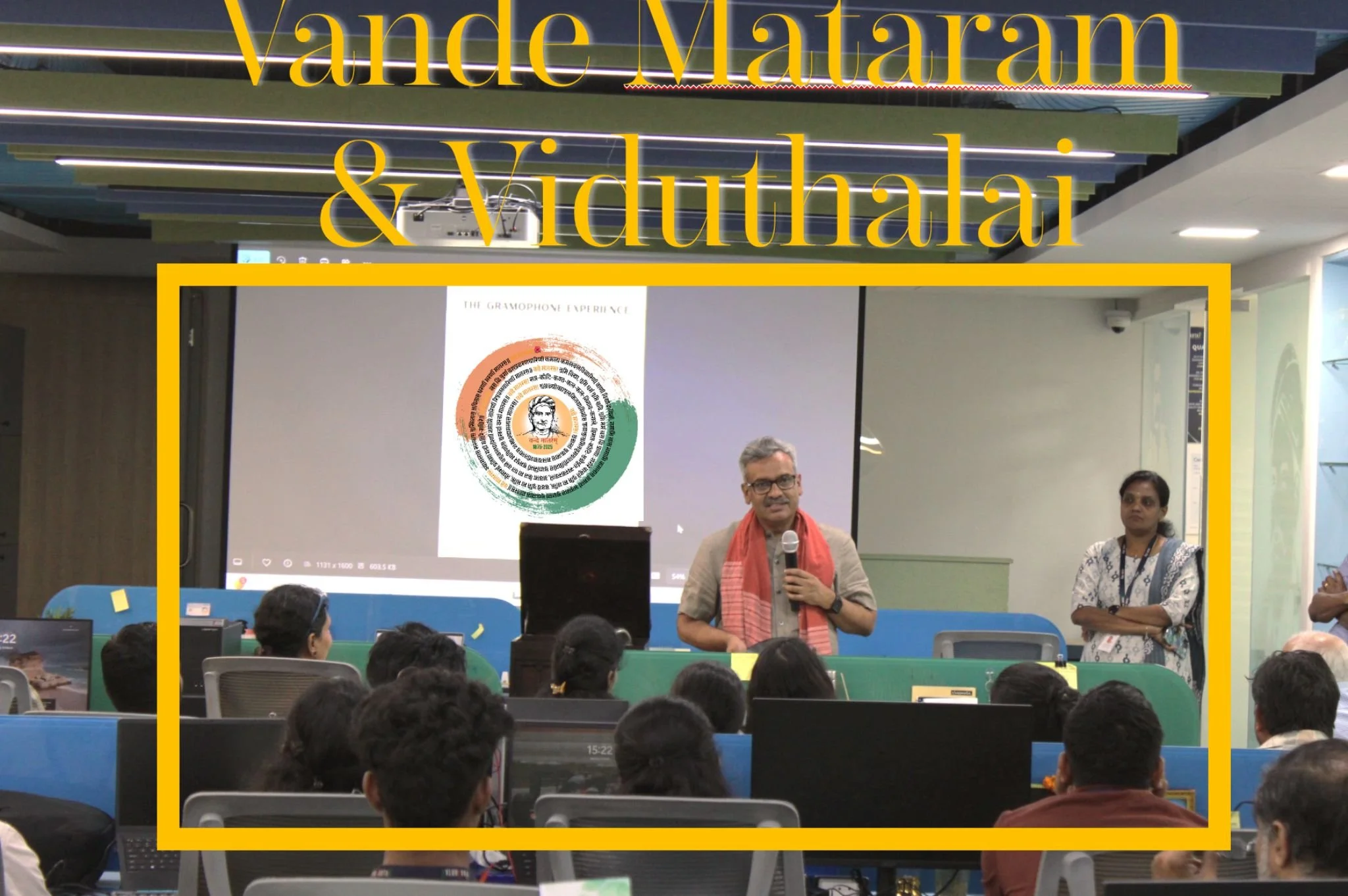Vande Mataram session in Chennai
Vande Mataram on Gramophone Records: A session at IITM-Pravartak in Chennai
The celebration of the 150th year of #VandeMataram—through the warmth and authenticity of #gramophone recordings—arrived in Chennai this month, adding yet another memorable chapter to this nationwide tribute.
What many may not know is that Subramanya Bharathi played an extraordinary role in taking Vande Mataram beyond the borders of Bengal. With unwavering devotion, he translated the song into Tamil, infused it with the fire of liberation, and made it a rallying cry of Indian nationalism. Bharathi was not simply a poet of Tamil Nadu; he was a national visionary—a champion of freedom from poverty, caste, illiteracy, superstition, and all forms of social stagnation.
And what better place to remember both Vande Mataram and Bharathi’s legacy than the inspiring grounds of #IITMadras?
The session began with the playing of Bharathi’s stirring song “Viduthalai”—a word that means freedom in Tamil. It struck me how naturally Tamil embraced Vande Mataram more than a century ago. If Tamil could adopt a Bengali song as its own anthem of liberation, why shouldn’t Viduthalai be celebrated in Hindi and other Indian languages as a universal symbol of freedom?
We also revisited the fascinating story of how Tamil Nadu became a pioneer in using gramophones for election propaganda, and how artists from theatre and cinema helped counter colonial narratives. This blending of culture, technology, and politics created a powerful space for nationalist expression—something we still have much to learn from.
In the second half, the focus shifted to the roles of Pandit Jawaharlal Nehru and Gurudev Rabindranath Tagore in shaping the destiny of Vande Mataram. Alongside gramophone playbacks, we walked through the deliberations of the Congress Working Committee meeting of October 1937 in Calcutta, and later, the Constituent Assembly debates, to understand how the song acquired its layered and sometimes contested history.
The experience was intellectually rich and emotionally resonant.
With IIT Madras now equipped with a fully functional gramophone and a trove of priceless records, I sense that this is just the beginning. Many exciting possibilities lie ahead—new conversations, deeper research, and perhaps more young minds discovering the magic of sound that needs neither electricity nor the internet.
The journey continues.


